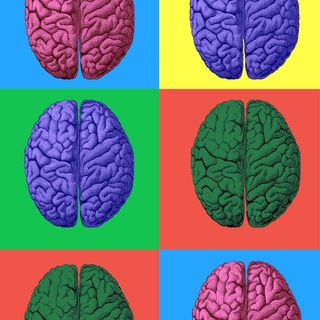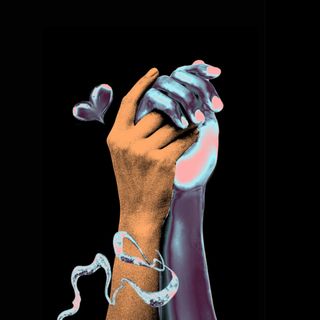
Psyched Up: Dream Analysis Can't Really Heal You

In the summer of 2004, the sensational reincarnation story of a boy named James made headlines across the US. The boy’s parents claimed he had a recurring pattern of nightmares and dreams which they, upon research, said pointed towards James’ previous life as a Navy fighter pilot. The Oprah Winfrey Network aired an as-told-to episode, featuring James and his parents on its show Miracle Detectives, purportedly “verifying” the authenticity of the claims. This arguably resuscitated the fascination with dream analysis, which soon became a fan-favorite category of infotainment.
In November 2021, a private investigation conducted by Michael Sudduth, a philosophy professor at San Francisco State University, debunked the reincarnation narrative crafted by James' opportunist parents. Through detailed examination of primary-source documents, Sudduth revealed how ordinary sources of information, such as videos and museum visits, significantly influenced James’ experiences and claims, casting doubt on the authenticity of his supposed past-life memories. Furthermore, the inconsistencies and redactions in the Leiningers' account further pointed to the fabricated nature of their story. Despite this unsparing exposé, the damage had already been done. Today, dream dictionaries, Reddit communities, workshop-retreats, and blockbuster movies, such Inception and Eternal Sunshine of the Spotless Mind, provide the realm of dream work new significance in the zeitgeist.
The fad soon spread to India, with the 2009 reality-TV series Raaz Pichle Janam Ka bringing on celebrities to be voluntarily hypnotized and sent into a trance-like dream state in order to unearth their previous lives. Soon, the Internet caught up, with popular high-traffic media websites and magazines, such as Buzzfeed, regularly featuring quizzes to decode the symbolic meanings of dreams. Today, the widespread obsession with dreams continues, supported by a mash-up of pseudoscience and science-speak. The gamut of “dream work” – involving hypnotherapy, shadow work, and lucid dreaming – shot to popularity in modern psychotherapy techniques, aimed at processing traumatic and formative life events. However, neuroscientists have remained skeptical and maintained that psychoanalytic studies are circumstantial and anecdotal.
For centuries, anthropologists have cited that dream interpretation has roots in ancient wisdom and religious myth-making. However, its enduring popularity in the modern-age can largely be credited to Freud and the advent of psychoanalysis. Freud's iconoclastic theories, particularly his work “The Interpretation of Dreams,” made a bold assertion: Dreams are neither universal nor divine messages but rather complicated manifestations of our psychological state. His theory of the “dynamic unconscious” suggested that dreams, Freudian slips, and even personality disorders stem from a sophisticated psychological mechanism where repressed desires may unexpectedly surface, often in undesirable ways such as nightmares. His timely examination of the nightmares experienced by World War I veterans propelled his work into the spotlight, particularly in 1900s European society grappling with the aftermath of war-related trauma. And despite relying heavily on anecdotal evidence, Freud's theories gained mainstream attention, lending urgency and scientific credibility to dream analysis, thrusting it into the discipline of psychology.
While admittedly popular among numerous practitioners and clients even today, the field is not without its pitfalls. However, various studies on dream analysis, particularly in the context of treating post-traumatic stress disorder (PTSD), have shown negative outcomes. One study revealed that analyzing dreams of veterans with PTSD led to adverse treatment results, as discussing nightmares triggered heightened responses and increased nightmare frequency. Additionally, interpreting nightmares made the nightmares even more vivid and cohesive when experienced again. Another study found that dream analysis could create false beliefs about past traumas, as analysts often exert significant influence over patients and may concoct false meanings for dreams. The participants in the study saw clinicians who interpreted their recent dreams as signs of past mildly traumatic experiences, such as feeling lost or abandoned before age 3. The intervention caused many participants to become more confident in these experiences, even if they had previously denied them. “In particular, the findings point to the possibility that dream interpretation may have unexpected side effects if it leads to beliefs about the past that may, in fact, be false”, per the authors.
“When people think they have had personal experiences with magical phenomena or hear stories about these phenomena from others, they might view these experiences as accurate representations of reality rather than question the veracity of their assumptions. If people do not have the motivation, ability, or contextual cues to override intuitions about magical phenomena, they are inclined to keep believing in them," reads a journal article in the Science Direct. Statistics consistently report that twice as many women go to therapy than men do, also demonstrating that women were more interested in using alternative methods such as hypnosis as opposed to men. Interestingly, shadow work is often peddled towards women.
Seemingly then the phantasmagoria of these dream-weavers– metaphorically and literally, is built on the collective disquietude of primarily women. It is not too surprising, considering that women who experience trauma are twice as likely as men to develop Post Traumatic Stress Disorder, and thus require more mediums to process, heal and understand their experience.
“Human beings constantly seek narratives to help weave their past, present, and future together,” The Swaddle noted earlier. And dream analysis is possibly one way to do that. But as Roc Morin writing for the Atlantic suggests, analysing them rationally could be limiting: “Dreams are typically regarded as part of a subordinate reality that only becomes significant if it can be translated into something rational. But when dreams are experienced on their own terms, they offer a glimpse of how expansive our minds can be outside the strictures of physical reality.”
Critiquing the same, psychologist James Hillman writes, “every time we try to deal with our outrage over the freeway, our misery over the office and the lighting and the crappy furniture, the crime on the streets, whatever every time we try to deal with that by going to therapy with our rage and fear, we're depriving the political world of something." The phenomenon, thus, depicts the canonization of dreams as a means of escapism, and a turn into the surreal and away from the real. Today, as we live and learn to face another day, another person signs up for the latest gimmick in the playbook: an AI Dream Interpretation Quiz.
Naina is a sociology graduate of the Delhi School of Economics. She presently works as a writer focusing on queer theory, culture, media semantics, and women's health.
Related


Partnering Under Capitalism
